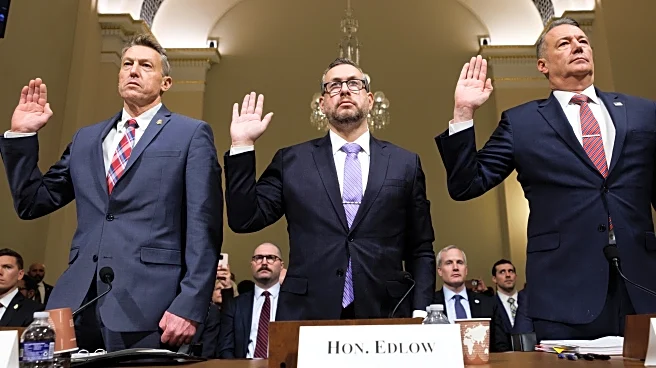What's Happening?
The American Hotel & Lodging Association (AHLA), along with over 30 industry associations, has sent a letter to U.S. Congressional leaders urging them to end the ongoing government shutdown. The shutdown,
now in its fourth week, is significantly impacting the hotel, travel, and hospitality sectors. According to AHLA, the shutdown is costing the economy $31 million daily in lost hotel activity, with an estimated $650 million in business losses for the hotel industry alone. The shutdown is causing economic uncertainty and reducing consumer confidence, leading to booking cancellations and discouraging future travel planning, particularly during the holiday season.
Why It's Important?
The hotel industry is a vital component of the U.S. economy, supporting 2.1 million direct jobs and contributing nearly $894 billion in GDP annually. The prolonged government shutdown threatens these jobs and the broader economic stability, as it affects small businesses and communities nationwide. The shutdown's ripple effects are felt across the tourism and hospitality sectors, impacting conferences, family trips, and overall travel plans. The AHLA and allied organizations emphasize the need for Congress to act swiftly to restore confidence and support the industries that drive economic growth.
What's Next?
The AHLA and other hotel associations are calling for immediate Congressional action to reopen the government and mitigate further economic damage. The associations stress the importance of restoring services that impact travel and tourism, urging leaders to replace political gridlock with momentum to support the economy, workforce, and millions of travelers. The industry is poised to continue advocating for legislative solutions to prevent future shutdowns and ensure stability for the hospitality sector.
Beyond the Headlines
The government shutdown highlights the vulnerability of the hospitality industry to political instability. It underscores the need for robust contingency planning and advocacy to protect economic interests. The situation also raises questions about the long-term impact on consumer behavior and travel patterns, potentially leading to shifts in how the industry operates and plans for future disruptions.











